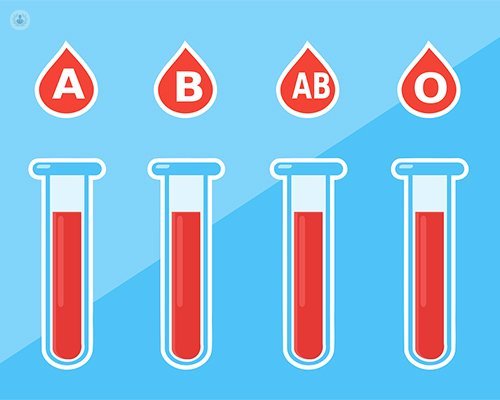Anaemia: the symptoms and causes explained
Written by:Anaemia describes a situation in which there is reduced oxygen carrying capacity in the blood. Usually oxygen is carried by a red coloured protein called haemoglobin which fills our red blood cells. If the haemoglobin level falls below a set reference range, we say that someone is anaemic.

What are the symptoms of anaemia?
Anaemia may be very mild and asymptomatic – perhaps identified only because someone has had a routine full blood count.
Alternatively anaemia may be severe and associated with tiredness or even shortness of breath. The symptoms are more likely to be severe if the anaemia develops suddenly.
How is anaemia diagnosed?
Investigating anaemia can be a challenging diagnostic process because there are so many potential causes. The treatment depends on correct identification of the cause. Book an appointment with your consultant haematologist for an anaemia diagnosis.
What are the causes of anaemia?
For some patients, anaemia occurs because blood is being lost from the body – this is not always obvious to the patient and may occur from the gastrointestinal tract, the urine or the uterus.
In other cases anaemia occurs because haemoglobin is not being made properly.
Three important dietary components for normal production of haemoglobin are iron, folate and vitamin B12. If any of these are lacking from the diet then anaemia will occur.
Green leafy vegetables are a good source of folate and meat is a good source of vitamin B12 and iron. Vegetarians can still have a good intake of vitamin B12 and iron, particularly if they eat a varied diet.
Strict vegans, however, are at risk of vitamin B12 deficiency and are likely to need vitamin B12 supplements.
Haemoglobin production can also be affected by illness. In any patient with chronic disease, anaemia can ensue and resolution of the anaemia requires identifying and treating the underlying disease.
Finally, mild anaemia may be due to inheriting a variant haemoglobin in which case it may be of minor concern and require no treatment. If two people both with inherited variants get married, however, further analysis may be required to establish whether there is a risk of having a child with severe anaemia.


